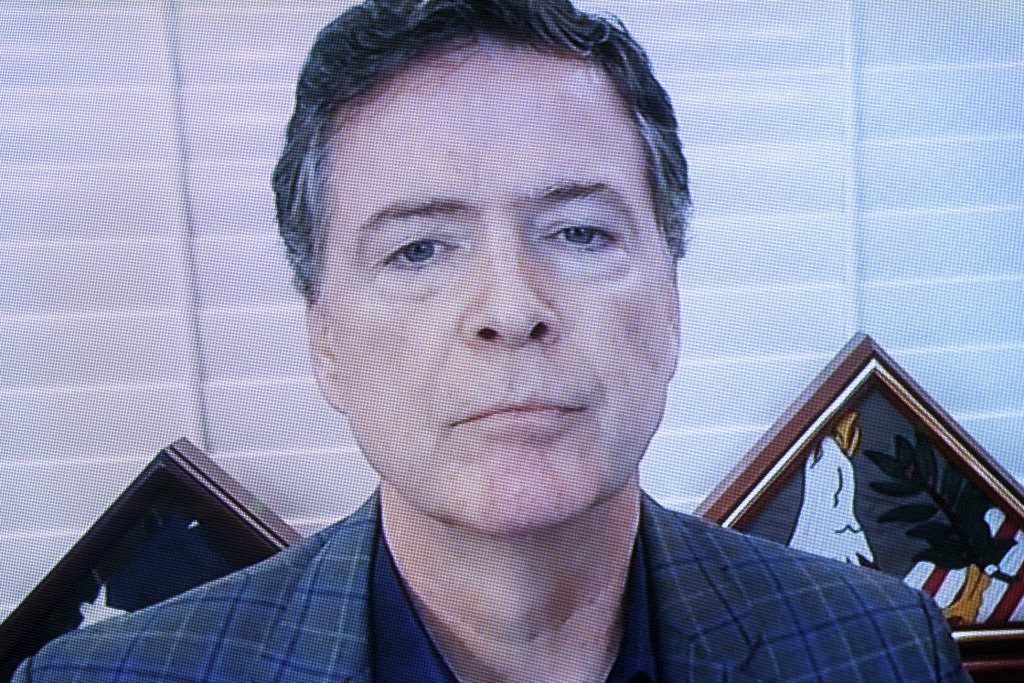
The ink was not even dry on the US Department of Justice's hastily drafted two-count indictment of former FBI Director James Comey when partisans chose sides.
Most on the "left" insisted that this was a revenge lawfare indictment with no basis in law or fact. Many on the "right" saw nothing amiss, arguing that the defendant did in fact lie to Congress.
The nonpartisan reality is that it is too early to make a full assessment of the merits or demerits of the case. The other reality is that the indictment raises several distinct if overlapping issues.
First and foremost is whether it properly alleges crimes. Put another way, if there is evidence to establish the allegations, would that evidence be sufficient for a conviction? In order to convict, the government must prove beyond a reasonable doubt that the defendant intentionally and under oath lied or deceived legislators about a material fact. So if a jury were to conclude that Comey knew that he had authorized an FBI assistant to leak material, his negative answer to a material question from Senator Ted Cruz might well be found to be a crime. Complicating matters, the assistant apparently referenced now denies that Comey was aware of the leak. Perhaps someone else was involved, such as a law professor through whom Comey allegedly laundered leaks. In any event, factual issues are for juries to resolve.
Second, Comey's lawyers are sure to argue that even if Comey did cross the line into criminality, he would not have been indicted if he had not alienated President Donald J. Trump.
The defense of selective or targeted prosecution is generally difficult to establish in the courts of law because of its inherently speculative nature, as distinguished from the courts of public opinion. But Trump's statement demanding that Comey be prosecuted might make it somewhat easier in the eyes of a sympathetic judge.
Third is whether Trump's statement so poisoned potential jury pools that a fair trial is impossible in northern Virginia.
Fourth is whether the trial should be held in Virginia rather than in the District of Columbia. The crimes charged are geographically complex. They involve an answer, which took place in Virginia, to a question asked in DC. Comey was home with COVID and was answering remotely. The constitution requires that the trial be conducted in "the state and district wherein the crime shall have been committed." The crimes alleged here were not committed by the general answer alone -- essentially a simple denial -- that was given in Virginia, but required the more specific question asked in DC, indicating what he had illegally done. Comey would almost certainly prefer a DC jury to a northern Virginia jury, but the district court is likely to rule that enough of the crime was committed in Virginia to justify it being tried there.
Before the case reaches a jury, the judge must make several critical rulings. To begin with, the defendant will probably seek a bill of particulars specifying the precise nature of the alleged lies, leaks and testimony comprising the alleged crime. The indictment itself is bare-bones, obviously rushed to beat the statute of limitations, which was imminent. There is also likely to be a superseding indictment that will provide more specificity.
Beyond all these important legal and constitutional issues lies the overriding ethical issue of whether this case would have been brought if the shoe were on the other foot -- if the same acts had been committed by a friend rather than an enemy of the administration. The same question can be asked of the prosecutions that targeted Trump, especially the Manhattan prosecution regarding hush money payments. There was simply no crime there. The prosecutor had to make one up. With Comey, there is a claimed crime. The question is, did he commit it?
Lawfare and selective prosecution are fundamentally wrong. It would be best if neither side misused the legal system to "get" their enemies. The Trump administration obviously believes that asking nicely is not likely to work, and that those who distort the legal system by turning it into "lawfare" must be held to account in order to stop it.
Alan M. Dershowitz is the Felix Frankfurter Professor of Law, Emeritus at Harvard Law School, and the author most recently of War Against the Jews: How to End Hamas Barbarism, and Get Trump: The Threat to Civil Liberties, Due Process, and Our Constitutional Rule of Law. He is the Jack Roth Charitable Foundation Fellow at Gatestone Institute, and is also the host of "The Dershow" podcast.


